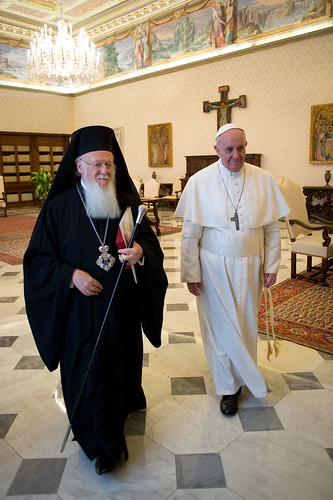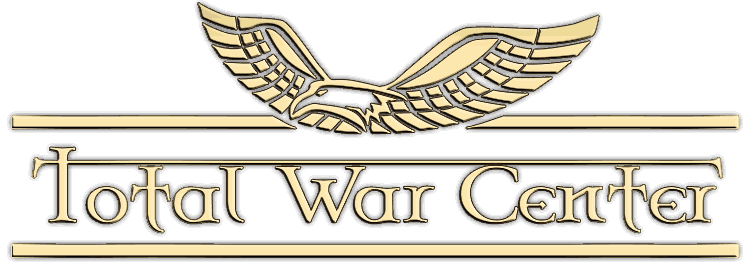During the sixth century, Byzantine armies conquered the Italian peninsula, returning the city of Rome to the imperial Roman government, now centered in Constantinople. In this context, which lasted from the mid-sixth century until the loss of Byzantine influence in Italy in the eighth century, the election of a new Roman bishop required the approval of the Byzantine emperor (the same, of course, was true of the election of a new Ecumenical Patriarch). Under such an arrangement, papal elections took longer but there still would be no reason for an Eastern Patriarch to travel to Rome for the installation.

There are a few examples from this Byzantine period, such as the election of Pope Pelagius I in 556, where the man elected to be the Roman bishop was actually in Constantinople at the time of his election. While it is possible that the sacramental ceremony to install the new pope could have occured in Constantinople--whereby the Patriarch of Constantinople would have been present--it is far more likely that the official ceremony would have occurred in Rome and, therefore, would have been conducted without the Patriarch's presence.
At the conclusion of Byzantine influence in papal elections in the eighth century, the election of Roman bishops returned, again, to local considerations. And, as geo-political factors continued to push Italy and the Eastern empire in separate directions, relations between individual popes and patriarchs became more sterile and distant--indeed, between the ninth and fifteenth century there are only one or two occasions where a Roman bishop and an Ecumenical Patriarch ever met in person.
With all of this in mind, His All-Holiness' decision to travel to Rome for Pope Francis' installation as Roman bishop is an extraordinary event in the history of Christianity. And it is significant for reasons far beyond its novelty. First and foremost it is a powerful symbolic gesture for the cause of Christian unity. It demonstrates in unprecedented fashion the extent to which the Ecumenical Patriarch considers the relationship with the Roman Catholic Church to be a priority. For their part, members of the Vatican staff have responded to this grand gesture and have arranged for the reading of the Gospel at the installation to be sung in Greek (rather than Latin) in recognition of the fact that the Ecumenical Patriarch has taken this unprecedented step.
















 Reply With Quote
Reply With Quote











 There are a few examples from this Byzantine period, such as the election of Pope Pelagius I in 556, where the man elected to be the Roman bishop was actually in Constantinople at the time of his election. While it is possible that the sacramental ceremony to install the new pope could have occured in Constantinople--whereby the Patriarch of Constantinople would have been present--it is far more likely that the official ceremony would have occurred in Rome and, therefore, would have been conducted without the Patriarch's presence.
There are a few examples from this Byzantine period, such as the election of Pope Pelagius I in 556, where the man elected to be the Roman bishop was actually in Constantinople at the time of his election. While it is possible that the sacramental ceremony to install the new pope could have occured in Constantinople--whereby the Patriarch of Constantinople would have been present--it is far more likely that the official ceremony would have occurred in Rome and, therefore, would have been conducted without the Patriarch's presence.




